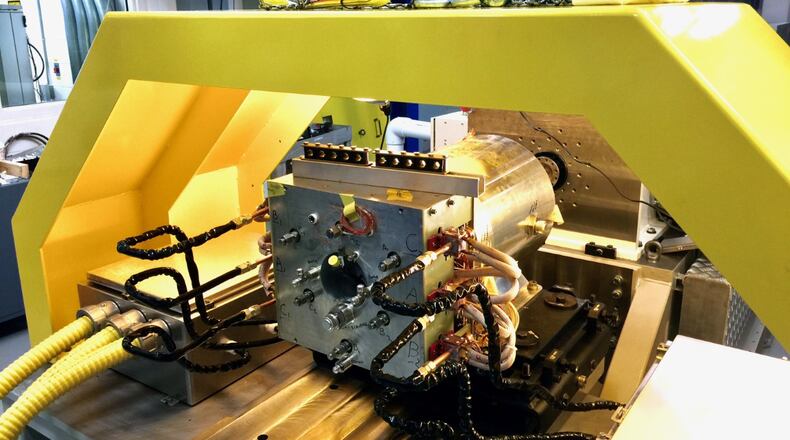As a result of the NASA funding award, GE expects to add more than 25 new hybrid electric engineering jobs.
The jobs will be based in Evendale, but the hybrid electric team visits EPISCenter for testing work, a GE Aviation spokeswoman said, adding that there are other job openings at EPISCenter now.
NASA, GE and partners will invest $260 million over five years to move hybrid electric flight technologies for commercial aviation. After years of working on components of a hybrid electric system — including motors, generators and power converters, some of which were tested in Dayton — GE said it will “systematically mature an integrated hybrid electric powertrain to demonstrate flight readiness for single-aisle aircraft.”
The hybrid electric technology will be flight-tested with a modified Saab 340B testbed and GE’s CT7-9B turboshaft engines.
“We are grateful for the opportunity to partner with NASA to take hybrid electric aircraft engines out of our test labs and into the sky, bringing more sustainable technology solutions to commercial aviation as quickly as possible,” Mohamed Ali, vice president of engineering for GE Aviation, said in a release.
GE says hybrid electric propulsion technologies save fuel and optimize engine performance. The company aims for its products to have net zero emissions by 2050 and hybrid electric engines will help achieve this target.
“By taking these concepts to flight, NASA and its partners will accelerate the transition of EAP [Electrified Aircraft Propulsion] technologies into commercial products and be a catalyst for economic growth,” said Robert Pearce, associate administrator for the Aeronautics Research Mission Directorate at NASA Headquarters in Washington.
About the Author


